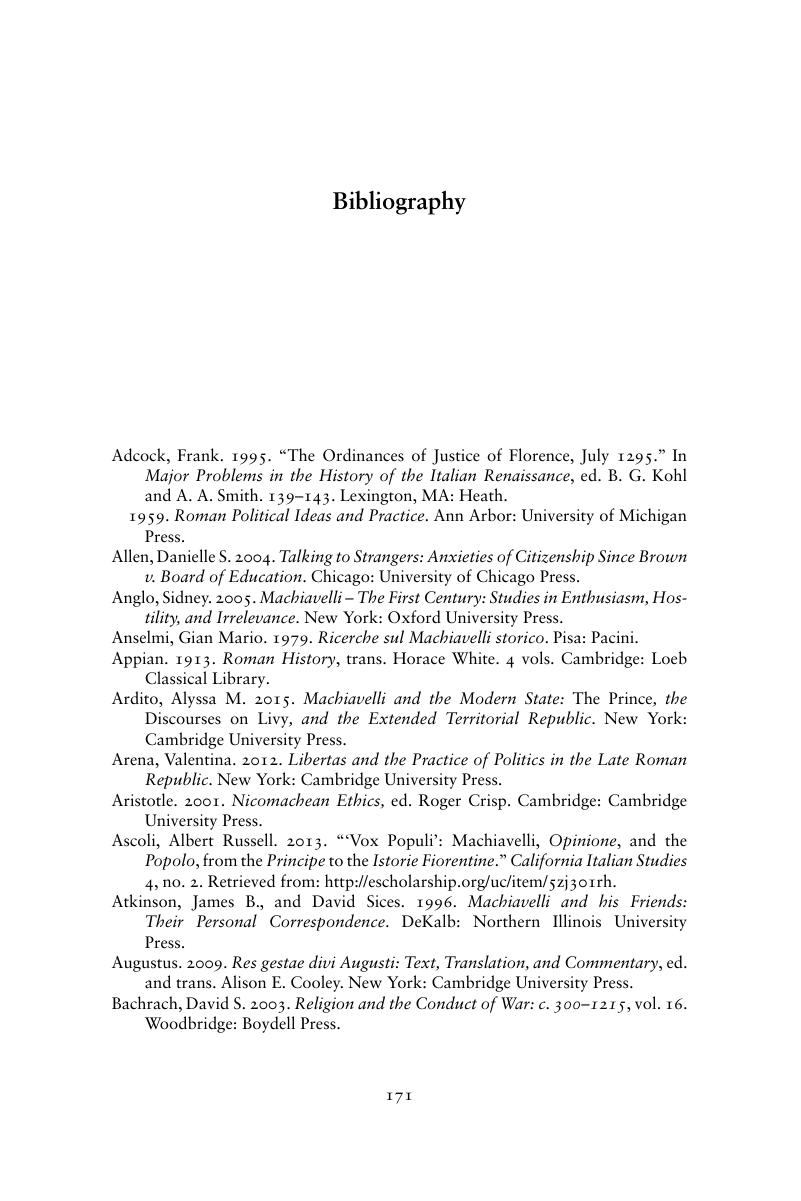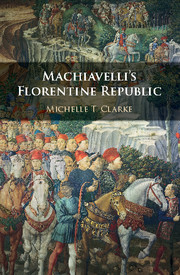Book contents
- Machiavelli's Florentine Republic
- Machiavelli's Florentine Republic
- Copyright page
- Dedication
- Reviews
- Contents
- Acknowledgments
- Abbreviations
- 1 Introduction
- 2 Another Republicanism
- 3 Italy after the Inundation
- 4 The Questionable Virtues of the Medici
- 5 Republican Virtue, Reconsidered
- 6 Political Ideas in History
- Bibliography
- Index
- References
Bibliography
Published online by Cambridge University Press: 15 March 2018
- Machiavelli's Florentine Republic
- Machiavelli's Florentine Republic
- Copyright page
- Dedication
- Reviews
- Contents
- Acknowledgments
- Abbreviations
- 1 Introduction
- 2 Another Republicanism
- 3 Italy after the Inundation
- 4 The Questionable Virtues of the Medici
- 5 Republican Virtue, Reconsidered
- 6 Political Ideas in History
- Bibliography
- Index
- References
Summary

- Type
- Chapter
- Information
- Machiavelli's Florentine Republic , pp. 171 - 186Publisher: Cambridge University PressPrint publication year: 2018

